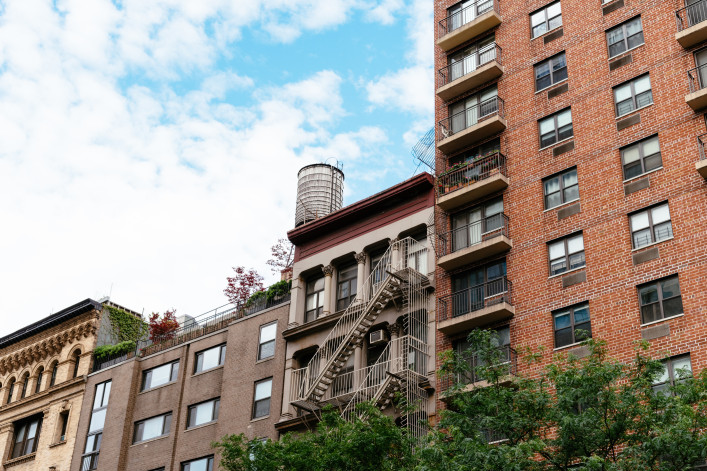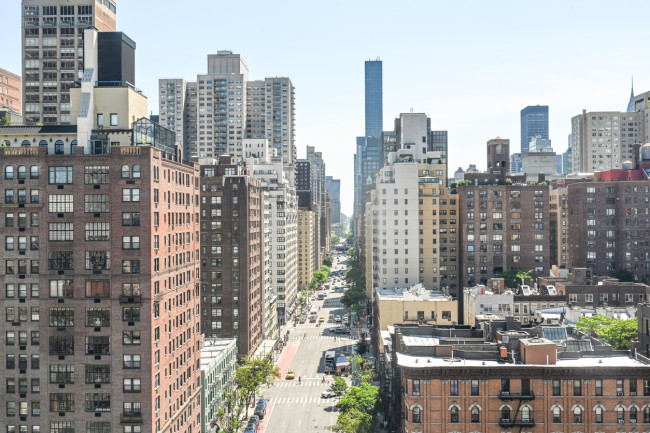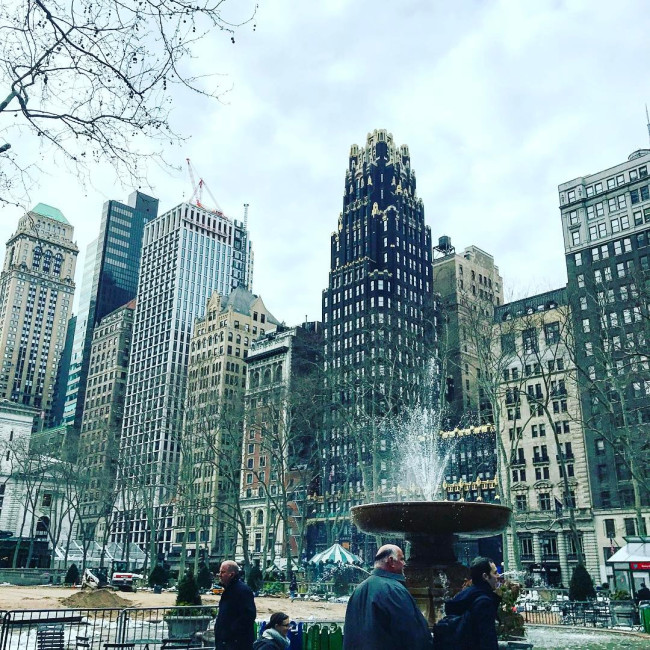What are the risks of buying with a pricey mortgage if my goal is to refinance later?
- You could be stuck with high monthly payments if interest rates fail to drop significantly
- But some sellers may be willing to sell at a discount, offsetting some of your costs

Buying an apartment in NYC is tough right now for two reasons: high mortgage rates and low inventory.
iStock
I want to buy a New York City apartment but I'm hesitant because I would need financing. A friend in real estate said less competition makes it a good time to buy and I can refinance my mortgage later. Is this a good strategy?
Your friend’s advice has some merit, but only if there are interest rate cuts in the future, so you need to be prepared for mortgage rates that don't come back down to earth, according to our experts.
This choice will depend a lot on your personal finances, and it’s best to get advice from your banker, attorney, and agent. You also need to be base your financial decisions on the higher mortgage rate.
The Federal Reserve made a series of benchmark interest rate hikes in an attempt to curb inflation, pushing up the cost of a mortgage to around 7 percent this year, which slowed financed condo and co-op purchases in NYC. Analysts predict the Fed will signal a rate cut in its meeting at the end of July since the pace of inflation has slowed, but there’s no guarantee it will cut rates later this year.
“We all believe that we’ve seen the peak of this late rate cycle and that the Fed is now poised to begin to cut rates, and hopefully cut rates over the course of the next year and a half or two years,” said Melissa Cohn, regional vice president of William Raveis Mortgage. “The odds are very good that rates will be down and that a buyer will have the opportunity to refinance, but you never know.”
If you want to buy now or explore your options, here’s what you should consider before signing on the dotted line.
Less competition, motivated sellers
Lots of sellers have stayed out of the market because they're sitting on mortgage rates of 3 or 4 percent and don't want to buy if it means they need a loan in the 7 percent range.
But buyers might also be able to find a seller who needs to offload their property—potentially at a discount, said Tali Berzak, an agent at Compass.
“There are a lot of sellers that are frustrated right now, especially those that are on the market,” Berzak said. “There is this anticipation of a potential September interest rate reduction, but we’ve heard it so many times in 2024 I think some sellers just want to move on and sell their property.”
Basically, sellers are a lot like those trying to date in NYC. Frustrated with the stops and starts in the market, they just want to settle. And they might just settle for “deals that they wouldn’t have done three months ago, or six months ago,” Berzak added.
Securing a rate buydown
A highly motivated seller may even help you lower your mortgage rate, said Matt Gundell, an agent at Compass.
If you’re lucky enough to find someone who needs to sell, they may be willing to give you a closing credit that you can use to buy mortgage points to lower your interest rate. Through that up-front cash payment, you can lower your interest rate on future monthly payments.
But it’s important to note that a seller paying for a rate buydown is rare in NYC because the market is so competitive.
The pitfalls of refinancing
The biggest risk of buying now is getting stuck with a high mortgage rate if interest rates don’t decline, or don’t decline enough to make a refinancing worth the cost.
In NYC, the cost to refinance a co-op loan can range between $3,000 and $5,000, far less than refinancing a condo loan, Cohn said. To refinance a $1 million condo loan, for example, a borrower could expect to pay between $10,000 and $12,000, she added. Plus, if you lose your job or run into other financial trouble, you may not be able to refinance at all.
“You have to take into consideration all of the potential pitfalls that could come between you and a refinancing,” Cohn said.
There’s an added risk to making any long-term financial decision this year: a presidential election. Regardless of your politics, whoever wins the presidency will have the power to shape the nation’s economy over the next four years—for better or worse.
“Many people feel that if [Donald] Trump were to be elected president that his policies and programs would be very inflationary,” Cohn said. “So it’s possible that inflation could kick back in and interest rates could remain high or go higher. There’s always that chance.”
For that reason, Cohn said a seven-year, adjustable-rate mortgage, where your interest rate is fixed for the first seven years, may be better than a shorter term loan because it will outlast the next presidential term.
Trouble at home? Get your NYC apartment-dweller questions answered by an expert. Send your questions to experts@brickunderground.com.































